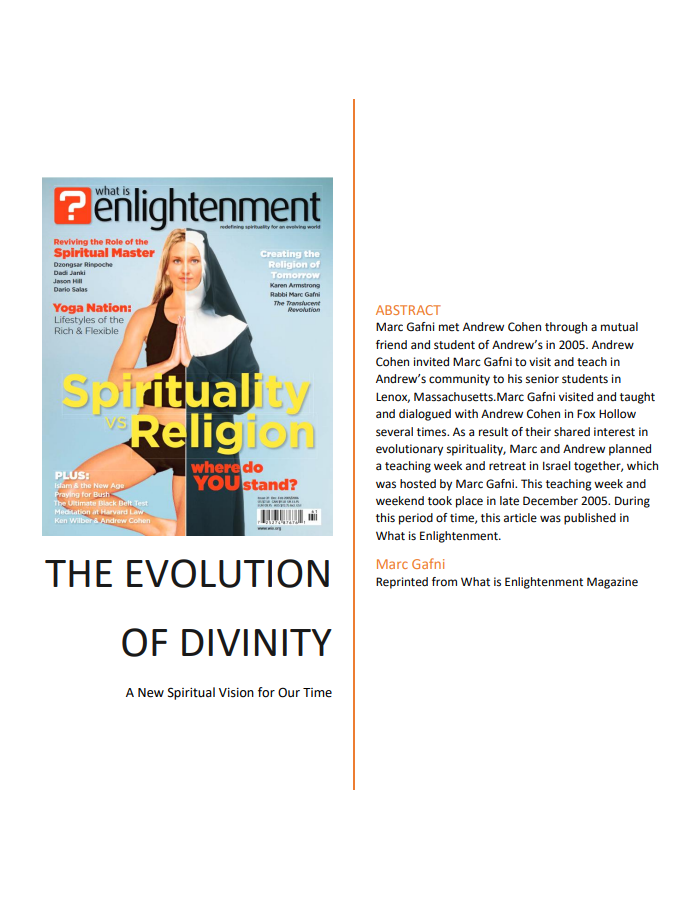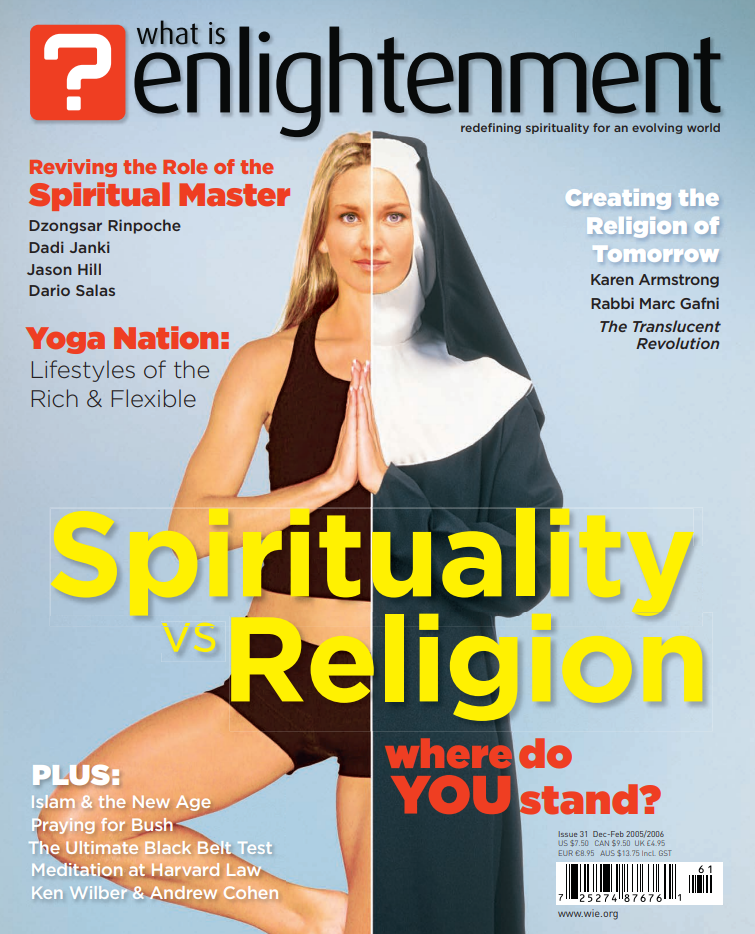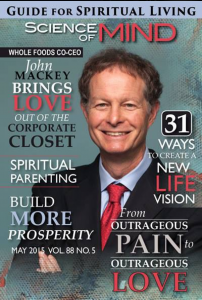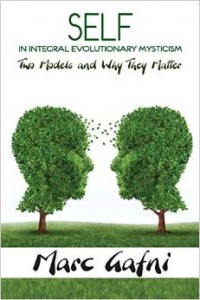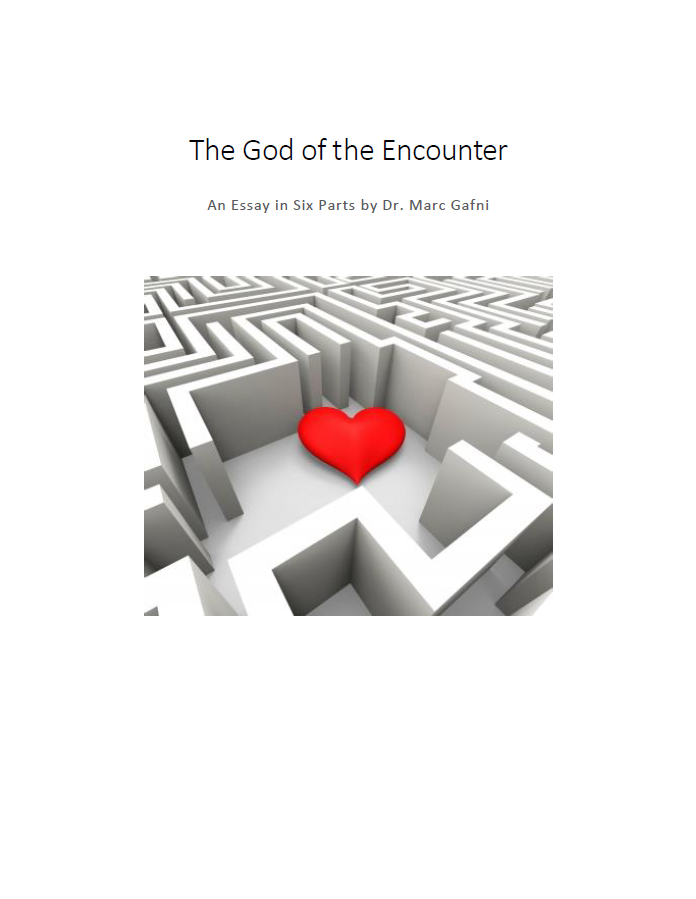The Evolution of Divinity – From What Is Enlightenment Magazine – by Dr. Marc Gafni
A New Spiritual Vision for Our Time
Reprinted from What Is Enlightenment Magazine
Abstract:
Marc Gafni met Andrew Cohen through a mutual friend and student of Andrew’s in 2005. Andrew Cohen invited Marc Gafni to visit and teach in Andrew’s community to his senior students in Lenox, Massachusetts. Marc Gafni visited and taught and dialogued with Andrew Cohen in Fox Hollow several times. As a result of their shared interest in evolutionary spirituality, Marc and Andrew planned a teaching week and retreat in Israel together, which was hosted by Marc Gafni. This teaching week and weekend took place in late December 2005. During this period of time, this article was published in What Is Enlightenment.

